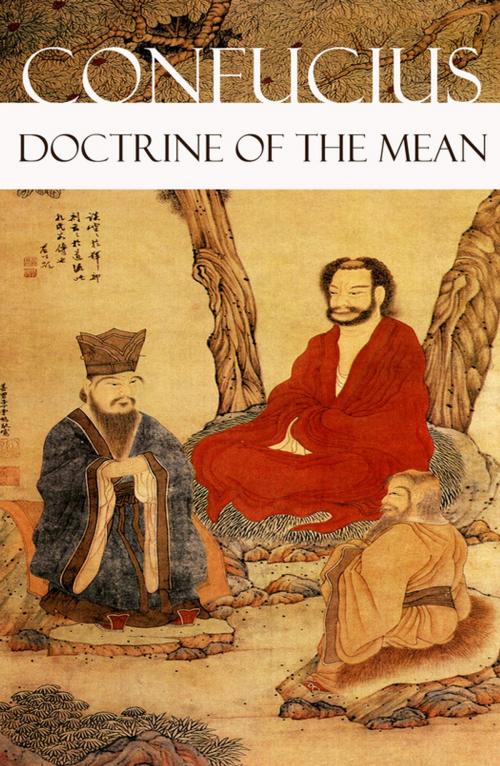Doctrine of The Mean (or How to Achieve Equilibrium)
Nonfiction, Religion & Spirituality, Philosophy, Eastern, Ethics & Moral Philosophy| Author: | Confucius | ISBN: | 9788074848612 |
| Publisher: | e-artnow | Publication: | October 8, 2013 |
| Imprint: | e-artnow | Language: | English |
| Author: | Confucius |
| ISBN: | 9788074848612 |
| Publisher: | e-artnow |
| Publication: | October 8, 2013 |
| Imprint: | e-artnow |
| Language: | English |
This carefully crafted ebook: “Doctrine of The Mean (or How to Achieve Equilibrium)” is formatted for your eReader with a functional and detailed table of contents.
In the The Doctrine of the Mean, one of the writings attributed to Confucius, many of the central doctrines of Confucianism are elaborated. The characteristic of jen is articulated in terms of a cluster of related moral terms including the Five Relationships, the principle of reciprocity (the Golden Rule), and various forms of virtue. The heart of Confucianism is explained here as the adoption of the policies of inculcating virtue in people by the example of tradition and the jen of the superior person.
Confucius (551–479 BC) was a Chinese teacher, editor, politician, and philosopher of the Spring and Autumn period of Chinese history.
This carefully crafted ebook: “Doctrine of The Mean (or How to Achieve Equilibrium)” is formatted for your eReader with a functional and detailed table of contents.
In the The Doctrine of the Mean, one of the writings attributed to Confucius, many of the central doctrines of Confucianism are elaborated. The characteristic of jen is articulated in terms of a cluster of related moral terms including the Five Relationships, the principle of reciprocity (the Golden Rule), and various forms of virtue. The heart of Confucianism is explained here as the adoption of the policies of inculcating virtue in people by the example of tradition and the jen of the superior person.
Confucius (551–479 BC) was a Chinese teacher, editor, politician, and philosopher of the Spring and Autumn period of Chinese history.















